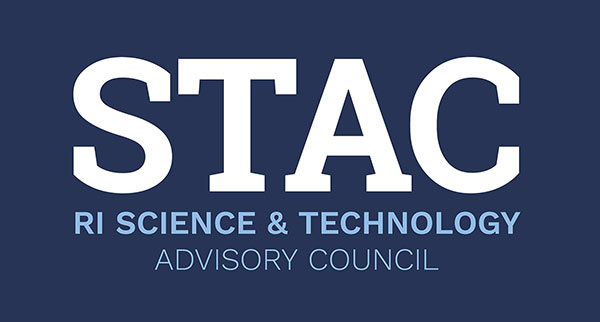The Rhode Island Consortium of Nanoscience and Nanotechnology
Co-Chairs Arijit Bose, Ph.D., and Robert Hurt, Ph.D.
Nanotechnology is poised to revolutionize life in ways many have only dared to imagine… and in many ways yet to be seen. Imagine cancer treatments that destroy tumors and leave surrounding tissues unharmed. Ultra-lightweight cars that get over 100 miles per gallon of gas. Cables so strong they can extend into space. Food packaging that can detect and warn of the presence of pathogens. These are but a few examples of emerging nanotechnologies that could revolutionize our way of life—and that illustrate why nanotechnology is predicted to be to the 21st Century what steel was to the 20th Century.

Nanotechnology is the science of understanding and controlling matter at a very, very small scale. A nanometer is a billionth of a meter (for an idea of just how small this is: a sheet of paper is about 100,000 nanometers thick!). Dimensions between approximately 1 and 100 nanometers are known as the nanoscale. Materials behave differently at the nanoscale-unusual physical, chemical, and biological properties can emerge. Quantum phenomena dominate.
With the ability to understand materials at the molecular level comes the possibility of manipulating them, of creating new materials with different (and desirable) properties. Nanotechnology has possible applications in a wide variety of fields, including medicine, energy, electronics, aerospace, construction and textiles, to name a few. It has the capability of producing “small miracles”.
It’s no miracle, however, that little Rhode Island has one of the highest rates of federal nanotechnology funding in the nation. The University of Rhode Island and Brown University are home to cutting-edge nanotech research in engineering and in the physical and biological sciences. Existing local businesses have products on the market that utilize nanotech materials and engineering, and have the infrastructure to continue to grow and innovate. The state is poised to make major discoveries that can bolster existing businesses and create new ventures.

In recognition of these strengths, the Rhode Island Consortium of Nanoscience and Nanotechnology was created in 2010 with a $1.25 million grant from the U.S. Department of Energy to create collaborations between academia and industry. Comprised of more than 75 University of Rhode Island and Brown University faculty, the Consortium aims to foster team research projects, establish joint infrastructure, and encourage collaborations between academia and industry. “The Consortium can help create connections by providing small seed grants to start university-industry research and development projects,” says Dr. Robert Hurt, Professor of Engineering and Director of the Institute for Molecular and Nanoscale Innovation at Brown University and Consortium Co-Chair. “We hope this new consortium will help us use our resources more effectively to develop and translate technologies that will enhance the knowledge economy in the Ocean State.”
To that end, the Consortium recently sponsored the Rhode Island Nanotechnology Showcase at the RI Center for Innovation and Entrepreneurship at Davol Square in Providence. Attended by over 150 URI and Brown faculty, students, industry professionals, state officials and others, the showcase offered a peek at some of the research currently underway in four key areas: nano materials, nano tools, nano energy applications, and nano health. Dr. Clayton Teague, director of the National Nanotechnology Coordination Office, delivered the keynote address, providing an overview of the federal government’s investment and vision for nanoscience and nanotechnology.

“This event is an excellent networking opportunity for Rhode Islanders who see the potential benefits that nanotechnology can bring to their work and to the state’s economy,” said Arijit Bose, professor of chemical engineering at URI and co-director of the Consortium. “Those in attendance can share the challenges from their business sector and learn how nanotechnologies can help improve products or create new ones.” Here are a few highlights from people we spoke with about projects they’re working on:
Dr. Peng Wang, University of Rhode Island
Applying learning from the plastics and food industries to create better medication tablets that improve the bioavailability of drugs
Dr. Lan Yao, University of Rhode Island
Creating a gold nanoparticle targeted delivery system for cancer treatment that coats liposomes and delivers them directly to the tumor tissue without affecting healthy tissue
Natalie Serrino, student at Brown University
Working on a project to create thinner, more efficient, more cost-effective materials to harvest solar energy
Dr. Maggie Gulbinska, Yardney Technical Products
An industry about to relocate to East Greenwich RI, Yardney is at the forefront of lithium-ion battery research. They are working with Brown and URI to create the next generation battery technology. Their batteries currently power the Spirit and Opportunity Mars rovers!
Dr. Christoph Rose-Petruck, Brown University
Investigating nanomaterials that can improve bio-medical imaging by selectively enhancing organ tissue features, so tissue can be studied in greater detail
Vinka Oyanedel-Craver, student at URI
Creating better ceramic water filters by adding nanoparticles to the clay before it is fired. This is a low-cost, reusable technology for households in developing countries that improves water quality by removing microbes.
For more information about the Consortium and nanotechnology research:
Rhode Island Consortium for Nanotechnology
National Nanotechnology Initiative
